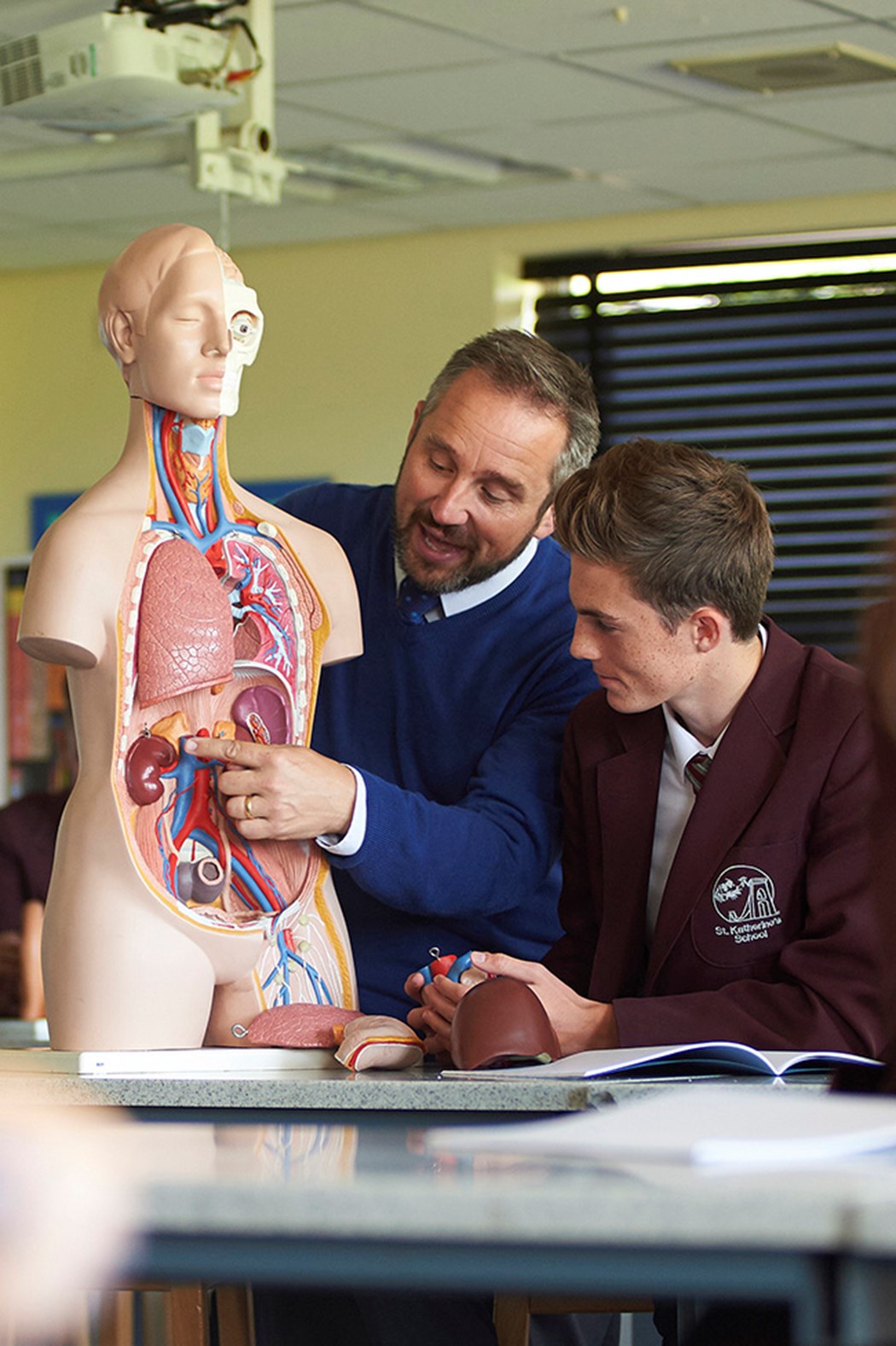Philosophy and Beliefs is the subject through which students will be enabled to understand how major world religions and worldviews are lived out locally and globally and how they impact society, culture and the wider world. It introduces students to the Big Questions about meaning and purpose and encourages them to reflect critically and responsibly on their own spiritual, philosophical and ethical convictions.
PB equips students with cultural capital, allowing them to understand wider cultural references which they will encounter throughout their lives - both in the working world and beyond and sparks a sense of awe and wonder in the face of the diversity of faith, belief, world-view and human experience.
At St Katherines, the Philosophy and Beliefs curriculum intends to develop this religious literacy, so is grounded in a multi-disciplinary understanding of the subject. By understanding the different disciplines, students see religion and worldviews through different lenses, and gain a stronger understanding of the well-established academic traditions including theology, philosophy and human sciences, in which the subject is rooted.
The theological lens encourages students to ask questions that believers would ask and consider the influence of sources of religious wisdom or authority on behaviour, as well as the multiple interpretations and historical contexts of these sources. The philosophical lens encourages students to explore questions and answers raised through considering the nature of knowledge, existence and morality and to develop the skills of logical reasoning, critical thinking, dialogue, discussion and debate. The human sciences lens requires students to ask questions that people who study lived reality or phenomena would ask, to think like a psychologist, anthropologist or sociologist and explore questions and answers raised in relation to the impact of religions and worldviews on people and their lives.
The PB curriculum at St Katherine’s provides a core body of knowledge to be investigated as students are exposed to the contrasting worldviews of Buddhism and Eastern thought, Humanism and other atheistic worldviews, alongside Abrahamic thought which gives students an understanding of the breadth of philosophical discussion as well as the cultural capital required to discuss important ideas with knowledge and confidence.
As students join us from over 40 diverse primaries, the KS3 curriculum assumes no prior knowledge about any specific religion or worldview, but also avoids repetition of content that many year 6 students may have already covered.
The significant Muslim minority within the St Katherine’s community provides opportunities for students and community linked individuals to share their lived experience. Teaching about prejudice and discrimination also encourages conversations about race and culture and aims to increase racial harmony.
KS3: The origin of key beliefs within major faiths and how these are interpreted. Exposure to big questions in Philosophy about the nature of God and what it means to be human. We want students to appreciate the lived reality of religious belief and how belief influences behaviour. We want them to be able to take part in intelligent conversations about religion, philosophy and ethics.
KS4: A minority of students opt to study a Religious Studies GCSE (currently the Eduqas (route A) course, switching to Edexcel for first teaching in 2022, to align with other schools in the trust). In addition to this, all students in years 10 and 11 study the Society and Culture course, which integrates Religious Education with statutory relationships and health education. The course is designed to help prepare students for life beyond school in our diverse society, where mutual respect and tolerance and understanding of difference is essential. It encourages critical thinking about modern issues as well as training in how to stay curious and approach respectful dialogue with those who differ in opinion from them.

